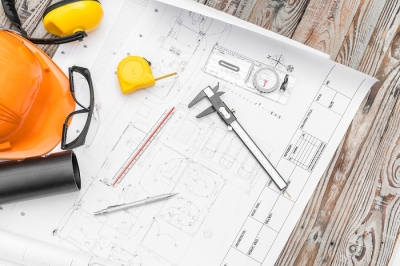
A well-equipped civil engineering laboratory is vital for providing students with hands-on experience and a deeper understanding of core concepts in materials, soil, concrete, and structural mechanics. Naugra Export, a leading supplier of laboratory equipment, offers a range of high-quality instruments essential for effective training and accurate testing in civil engineering labs. These tools bridge the gap between theoretical knowledge and practical application, ensuring students are prepared for real-world construction challenges. Below is a list of the top 10 must-have instruments from Naugra Export that every civil engineering lab should prioritize to foster learning, ensure precision, and produce industry-ready engineers.
1. Compression Testing Machine: This is a cornerstone instrument for testing the compressive strength of concrete cubes and cylinders. It helps students evaluate the load-bearing capacity of materials, a critical parameter in structural design.
2. Vicat Apparatus: Essential for determining the setting time and consistency of cement, the Vicat apparatus ensures students understand how cement behaves during hydration, a key factor in construction planning.
3. Slump Cone Test Apparatus: This simple yet vital tool measures the workability of fresh concrete. It provides quick insights into the mix’s consistency, helping students assess its suitability for different construction applications.
4. California Bearing Ratio (CBR) Testing Machine: Used to evaluate the strength of subgrade soil and base materials, the CBR machine is critical for road and pavement design, enabling students to simulate real-world conditions.
5. Sieve Shaker: Particle size analysis is fundamental in material testing. A sieve shaker automates the process of separating soil or aggregate particles, ensuring accurate gradation results for quality control.
6. Permeability Test Apparatus: This instrument measures the permeability of soil or concrete, helping students understand water flow characteristics, which are crucial for designing foundations and drainage systems.
7. Flexural Strength Testing Machine: Used to assess the ability of concrete beams to resist bending, this machine is essential for studying structural behavior under load.
8. Tensile Strength Testing Machine: This tool evaluates the tensile properties of materials like steel, enabling students to explore the behavior of reinforcement bars in concrete structures.
9. Rebound Hammer: A non-destructive testing tool, the rebound hammer assesses the surface hardness and quality of concrete without causing damage, making it ideal for practical training.
10. Los Angeles Abrasion Testing Machine: This instrument tests the durability of aggregates under abrasion and impact, helping students ensure the quality of materials used in construction.
Investing in these high-quality instruments from Naugra Export, manufacturers of civil engineering lab equipments to deliver comprehensive training. These tools enhance accuracy, build student confidence, and promote safety during testing. For institutions in India and worldwide, a well-calibrated lab setup with proper documentation ensures compliance with academic standards and industry requirements. By fostering hands-on learning, these instruments not only improve academic performance but also produce skilled, confident engineers ready to tackle the challenges of modern construction.
